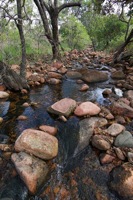Difference between revisions of "Habitat"
(Created page with 'File:lighterstill.jpgright|frame ==Etymology== Latin, it inhabits, from habitare *Date: [http://www.wikipedia.org/wiki/18th_Century 1796] ==Definiti...') |
m (Text replacement - "http://" to "https://") |
||
| Line 3: | Line 3: | ||
==Etymology== | ==Etymology== | ||
[[Latin]], it inhabits, from habitare | [[Latin]], it inhabits, from habitare | ||
| − | *Date: [ | + | *Date: [https://www.wikipedia.org/wiki/18th_Century 1796] |
==Definitions== | ==Definitions== | ||
*1 a : the place or [[environment]] where a plant or [[animal]] naturally or [[normally]] lives and [[grows]] | *1 a : the place or [[environment]] where a plant or [[animal]] naturally or [[normally]] lives and [[grows]] | ||
| Line 10: | Line 10: | ||
*2 : the place where something is commonly found | *2 : the place where something is commonly found | ||
==Description== | ==Description== | ||
| − | A '''habitat''' (which is [[Latin]] for "it inhabits") is an [[ecological]] or [[environmental]] area that is inhabited by a particular [[species]] of [[animal]], [ | + | A '''habitat''' (which is [[Latin]] for "it inhabits") is an [[ecological]] or [[environmental]] area that is inhabited by a particular [[species]] of [[animal]], [https://en.wikipedia.org/wiki/Plant plant] or other type of [[organism]]. It is the [[natural]] environment in which an [[organism]] lives, or the [[physical]] environment that surrounds ([[influences]] and is utilized by) a species population. |
The term "population" is preferred to "[[organism]]" because, while it is possible to describe the ''habitat'' of a single black bear, we may not find any particular or [[individual]] bear but the grouping of bears that [[constitute]] a [[Reproduction|breeding]] [[population]] and occupy a certain biogeographical area. Further, this habitat could be somewhat [[different]] from the habitat of another [[group]] or population of black bears living elsewhere. Thus it is neither the [[species]] nor the [[individual]] for which the term habitat is typically used. | The term "population" is preferred to "[[organism]]" because, while it is possible to describe the ''habitat'' of a single black bear, we may not find any particular or [[individual]] bear but the grouping of bears that [[constitute]] a [[Reproduction|breeding]] [[population]] and occupy a certain biogeographical area. Further, this habitat could be somewhat [[different]] from the habitat of another [[group]] or population of black bears living elsewhere. Thus it is neither the [[species]] nor the [[individual]] for which the term habitat is typically used. | ||
[[Category: Ecology]] | [[Category: Ecology]] | ||
Latest revision as of 00:19, 13 December 2020
Etymology
Latin, it inhabits, from habitare
- Date: 1796
Definitions
- 1 a : the place or environment where a plant or animal naturally or normally lives and grows
- b : the typical place of residence of a person or a group
- c : a housing for a controlled physical environment in which people can live under surrounding inhospitable conditions (as under the sea)
- 2 : the place where something is commonly found
Description
A habitat (which is Latin for "it inhabits") is an ecological or environmental area that is inhabited by a particular species of animal, plant or other type of organism. It is the natural environment in which an organism lives, or the physical environment that surrounds (influences and is utilized by) a species population.
The term "population" is preferred to "organism" because, while it is possible to describe the habitat of a single black bear, we may not find any particular or individual bear but the grouping of bears that constitute a breeding population and occupy a certain biogeographical area. Further, this habitat could be somewhat different from the habitat of another group or population of black bears living elsewhere. Thus it is neither the species nor the individual for which the term habitat is typically used.
